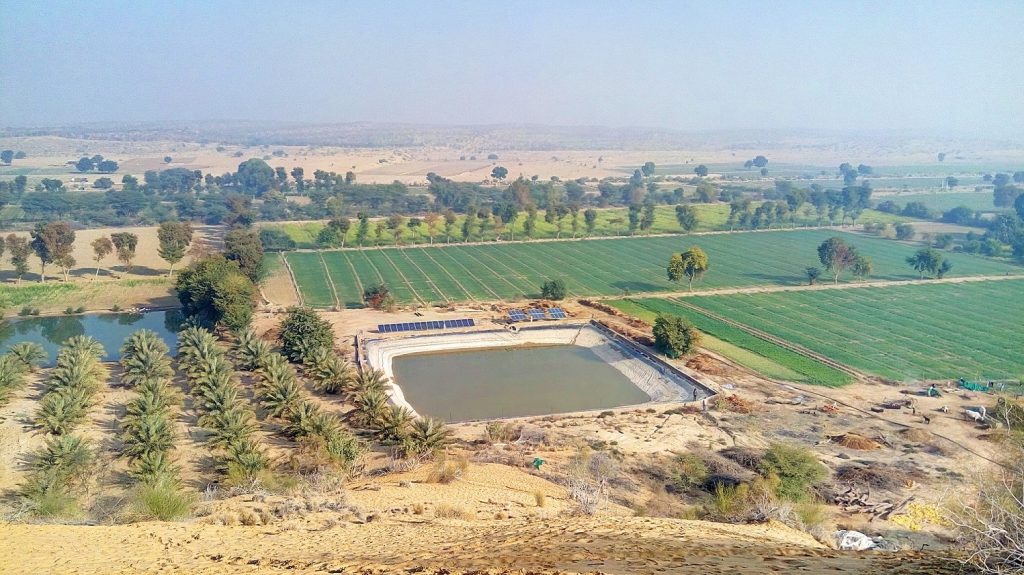In 2018, a report by NITI Aayog stated that India was facing the worst water crisis in history. Over 60% of the country is vulnerable to drought and one-third of the country’s districts have faced more than four droughts in the past decade. But, the worst is yet to come. By 2030, India’s water demand will be double its available supply.
Clearly, conserving water and recharging the underground water table is critical for farmers who depend on it for their livelihood. But traditional water conservation solutions, such as concrete tanks, are unaffordable for the vast majority of Indian farmers.
Several startups and NGOs have come forward to propose solutions to this problem, including 22-year old Maithili Appalwar. The Georgia Tech engineer returned to India when she realized that simple solutions could solve India’s water crisis.
She founded Avana, a strategic business unit at Emmbi Industries, to create affordable solutions that pull Indian farmers out of hunger and poverty. Avana’s flagship product, Jalasanchay, is an affordable end-to-end water conservation solution. Over 200 billion litres of water has been conserved by using simple techniques of water conservation in various districts of Maharashtra and Rajasthan which has resulted in better livelihood for hundreds of farmers and villagers.
Jalasanchay is a simple, but brilliant, idea — you dig a large pit in the farm and cover it with a polymer lining that does not allow the water to seep into the ground; this creates an artificial pond that captures rainwater and river surplus. At 1 paisa per litre per year, Jalasanchay costs 1/10th of a concrete tank for the same size of water storage, making it viable for farmers at the bottom of the pyramid too. The solution is highly scalable.
200 billion litres of water has been conserved successfully at Ahmednagar, Aurangabad, Jalna, Beed, Solapur, Pune and other regions in Maharashtra, as well as Jaisalmer, Bikaner, Churu, and other places in Rajasthan.

Says Maithili, “I am passionate about frugal innovations – about doing more with less. I think the key is realizing that innovation in technology is not necessarily about big investment. It’s about solving critical problems in the most efficient way possible.”
Maithili recently participated in a seminar organised by the Ministry of Water Resources. She was the youngest speaker at the event and her talk explained how technical textiles can be used to create simple, scalable solutions to disrupt Indian agriculture.
Thank you for reading. Please drop a line and help us do better.
Regards,
The CSR Journal Team

